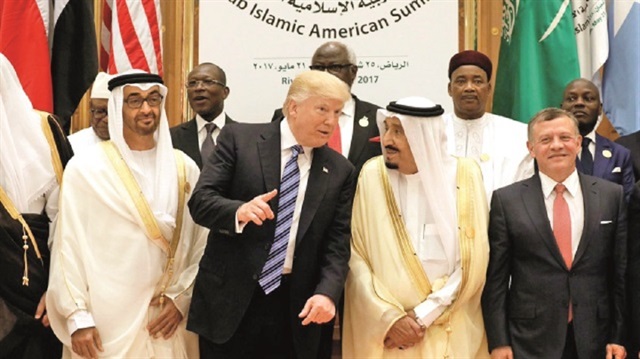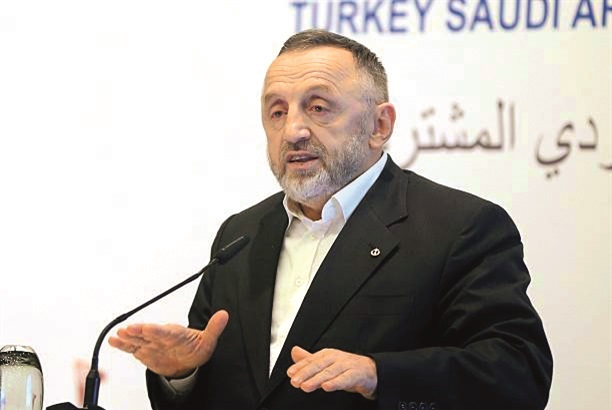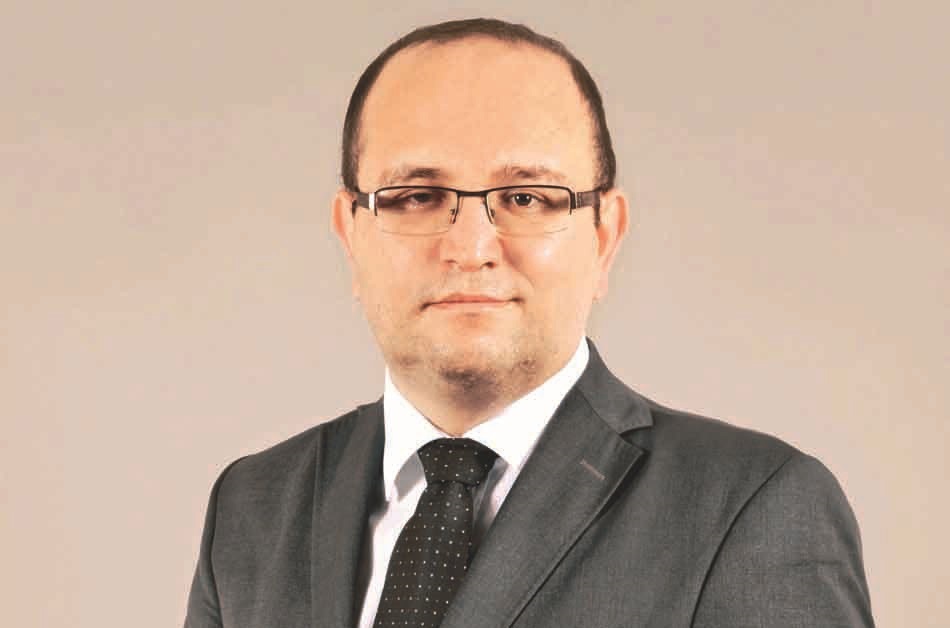
Specialists evaluated the situation and stated that Trump, who has waged an economic war against many countries, including China, Turkey and Iran, is now planning to seize the petrodollars of Gulf countries
As U.S. President Donald Trump searches for new schemes to reduce the country’s foreign trade deficit and national debt by waging an economic war on countries by imposing unfair tariffs under the pretext of his “America First” campaign, reports have surfaced that his next target is the funds of Arab countries.
Arab countries, primarily Saudi Arabia, the United Arab Emirates (UAE), Kuwait and Bahrain, currently have $4 trillion in U.S. and U.K. banks.
A large amount of these funds belongs to Saudi and the UAE, with the revenues of petrol and natural gas directly transferring into U.S. banks.
Specialists evaluated the situation and stated that Trump, who has waged an economic war against many countries, including China, Turkey and Iran, is now planning to seize the petrodollars of Gulf countries.

Speaking to Yeni Safak daily, Cevahir Holding Chairman of the Board of Directors Yusuf Cevahir stressed, “The U.S. does not question the source of the money that comes from Gulf countries deposited into U.S. banks. However, when companies in Gulf countries want to withdraw money from U.S. banks, they are immediately faced with the questions regarding the "money source." This situation has been like this since the September 11 attacks. As long as oil revenues stay in the U.S., there is no problem. They only allow cash flow in the case of purchases of supplies and equipment from the U.S. Many Saudi companies have had mortgages currently because the U.S. does not allow cash withdrawals. Therefore, many projects in Saudi Arabia have come to a standstill because of the troubles these companies face. He also stressed that the companies in Saudi’s $500 billion mega-city NEOM project face the same difficulties.
“This situation shows that countries such as Saudi Arabia, UAE, Kuwait and Bahrain work together with the U.S. in a chain of command.”

Director of Istanbul University’s Banking Research Center Kadir Tuna in his turn stated that the possibility of seizing Arab funds has never been so strong.
“Economic ties between the U.S. and Saudi Arabia and the UAE is far beyond than a usual investor and banker relationship. In terms of international banking, the fact that such large amounts of money are being held in U.S. banks for years is an unusual situation.
“This situation cannot be defined with international law. Saudi Arabia has an extraordinary tie to the U.S. Trump, at any moment, can officially declare that he has seized the money,” he said.
According to reports, a number of Saudi assets and foundations will face large compensation lawsuits by the insurance companies of the families of victims of the 9/11 attacks under the pretext of supporting al-Qaeda.
Washington is said to be leveraging the 9/11 court decision in an attempt to seize Saudi assets in the U.S. which will put the oil-rich kingdom’s investments there at risk.
Saudi Arabia also called off plans for the domestic and international listing of state oil giant Aramco, billed as the biggest stock flotation in history, four senior industry sources said on Wednesday, according to Reuters.
This was interpreted as a bid to protect Saudi stocks from being seized by the U.S.
However, the Saudi government early Thursday issued a statement denying the reports.
“The government remains committed to the initial public offering of Saudi Aramco, in accordance with the appropriate circumstances and appropriate time chosen by the Government,” Energy Minister Khalid al-Falih said in a statement released on Saudi Press Agency.
Trump had planned to target Arab funds since before his election. In a speech in Florida during his election campaign in 2016, he stated that the Gulf “has nothing but money.”
“We want to do safe zones in Syria. I will get the Gulf states, who are not doing much, believe me. The Gulf states have nothing but money. I’m going to get them to pay. We owe 19 trillion, we’re not paying for it. Don’t forget, without us, the Gulf states won’t exist,” he said.


